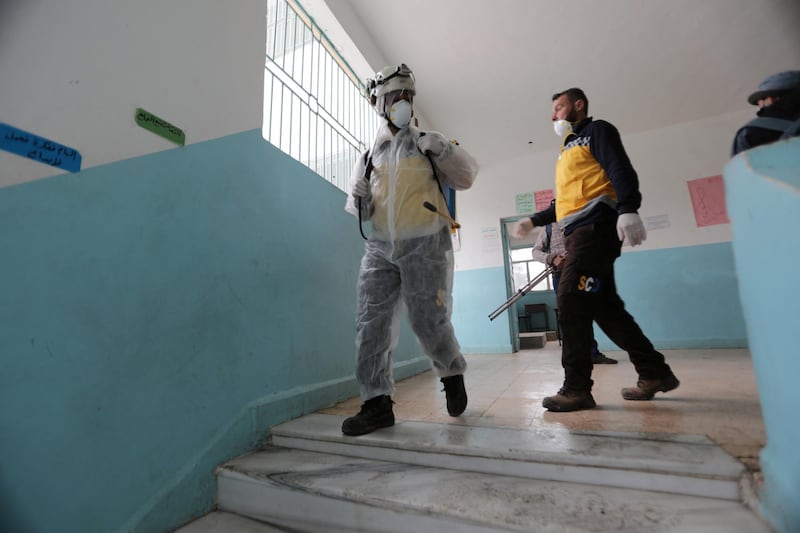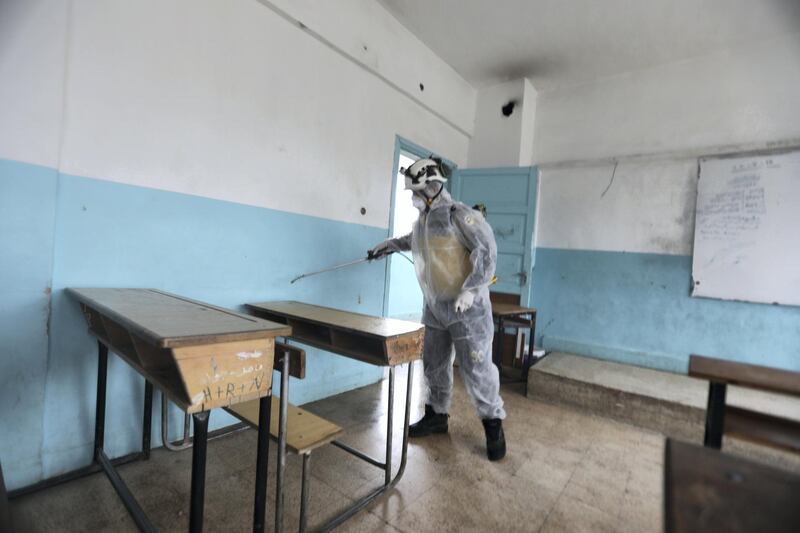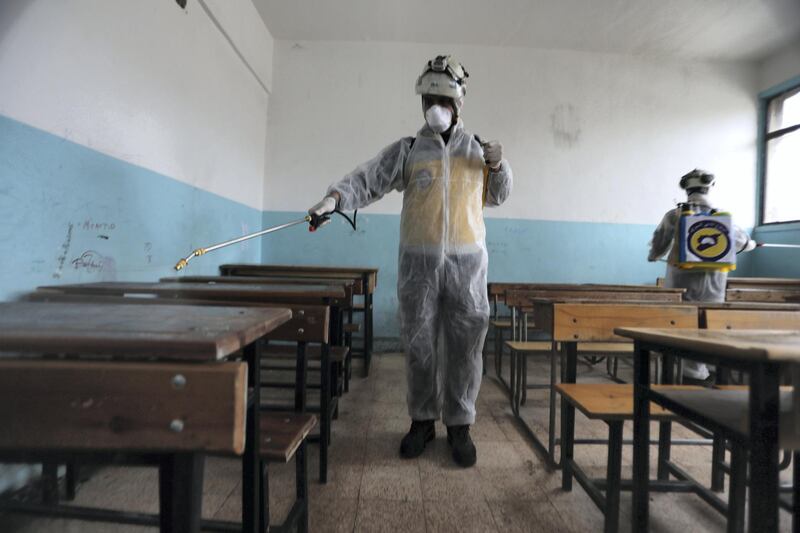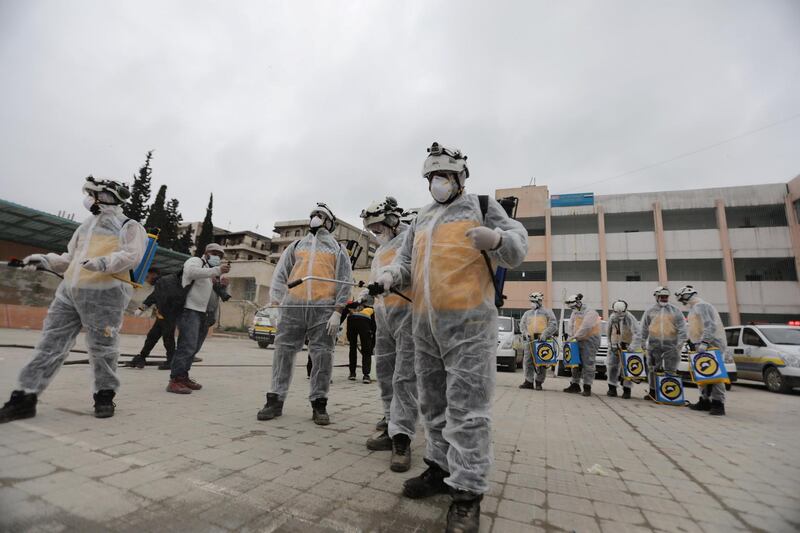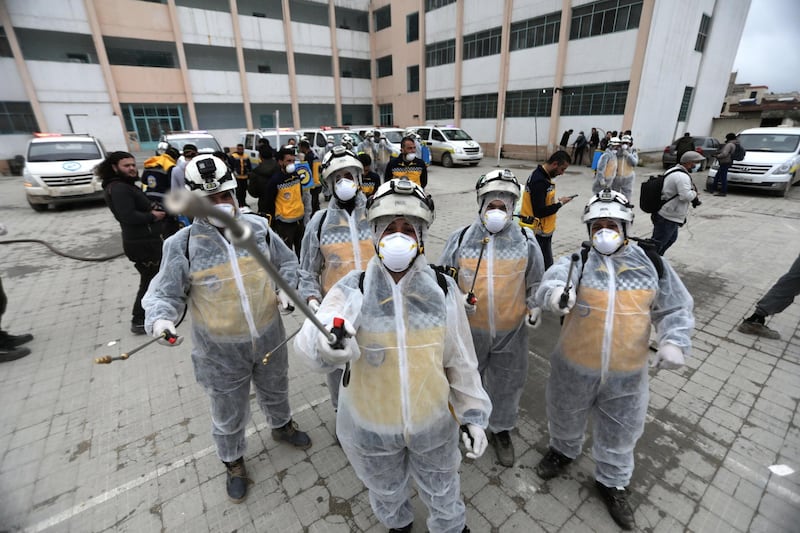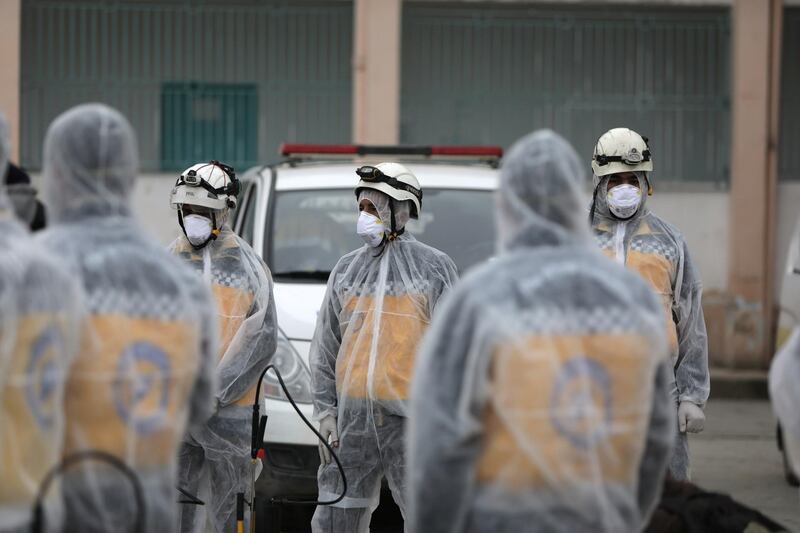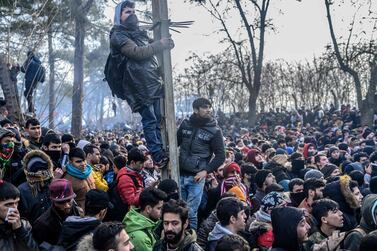Syrian aid workers who are supplying vital resources to the besieged north-west province of Idlib say they are working “25/7” to deal with the extra challenge of coronavirus risk mitigation as the pandemic takes a firm hold of other parts of the Middle East.
Around three million people are trapped in Syria's last major opposition stronghold following an aggressive three-month campaign by President Bashar Al Assad and his Russian allies to seize back the province.
The Syrian NGOs who administer aid to the area have been working tirelessly to help the almost one million people who have been displaced since December, despite a severe shortage of food, shelter and medical facilities. Now they are faced with trying to prevent an outbreak of coronavirus, which many have said could be "catastrophic".
“Every time we think things can’t get worse in Syria, life smiles at us and it gets worse,” said Yakzan Shishakly, co-founder of the Maram Foundation, which provides relief to refugees in Syria.
"We were working 24/7 before, now we are working 25/7 ... We already say that Idlib is the world's worst man-made humanitarian situation. If this gets into the camps it will be the worst disaster in history."
The World Health Organisation says there are so far no recorded cases of the virus in Syria, although the UK-based Syrian Observatory for Human Rights claims there have been deaths that have gone unreported. Testing is currently only possible through a remote laboratory, however, the WHO told The National that a shipment of testing kits is expected to reach the country in around a week's time.
One of the biggest fears is that an outbreak will occur in one of Idlib's densely-populated refugee camps, where people are living in close proximity to each other and whole families share tents as small as 4 square metres.
With barely enough food or nutrition, immunity is an issue and respiratory infections are already rife. There is little space for isolation and not enough water for efficient sanitation.
A doctor working for an NGO, who declined to be named, said that the spread of the disease should not be thought of in terms of if it will happen, but rather when.
On Wednesday, volunteer group The White Helmets began a sterilisation campaign in collaboration with Turkey's health directorate in Turkish-controlled northern Syria. Schools and densely-populated areas of northern Aleppo and Afrin were sanitised, with plans for more areas to be cleaned in the coming days.
Aid groups are also carrying out hygiene awareness campaigns in schools and training their teams on how to limit the spread of infection. Many of the office staff are now working from home, making operations more difficult, and those on the ground have been issued with masks and sanitiser.
"It is impossible to evacuate the camps if there is an outbreak, so the emphasis is now on prevention," said Mr Shishakly.
"One of the main worries is the lack of hospitals. The Syrian government have been targeting health facilities, which has compromised the resources needed to contain diseases."
The Maram Foundation are already working to hand out hand sanitiser, but said they are not getting the support from their partner organisations needed to work to the level that they would like.
"We are beyond capacity ... but we should not wait until the last minute – we should be fighting this now. We can't wait until something happens," said Mr Shishakly.
Speaking previously from his office in Gaziantep, southern Turkey, the United Nations deputy co-ordinator for the Syrian crisis Mark Cutts said that they were "very concerned" about the loss of hospitals.
"The health facilities were not adequate even before the current escalation in the violence," he said.
"A number of specialised medical facilities that dealt with vaccinations and laboratories, which were essential to preventing and containing the spread of diseases, have been lost. It's a huge worry when you've got a large number of people living in overcrowded camps and out in the open."
The White Helmets said they had documented the targeting of 61 medical facilities since the military offensive began in April last year, and that they were only able to prepare three containment centres with 60 beds in Idlib.
There have launched Violet's Trainings for the responses concerned with Corona Virus through qualifying tens of paramedics specified for saving the infected or likely to be so , with specialist teams of sterilization. pic.twitter.com/eKSSBjRiQJ
— Violet Organization - منظمة بنفسج (@org_violet) March 16, 2020
"As aid workers we are trying to take all the mitigation measures. We are very committed to supporting the most vulnerable people in Syria," said Fuad Sayedissa, spokesman for the Violet Organisation, which operates three camps in Idlib.
He said that while some displaced people in the camps are scared that coronavirus will arrive, after long and bad experiences with displacement others simply don't care anymore.
"After nine years of this civil war we have faced a lot of challenges that we have been able to deal with," he said. "Maybe this will be the worst. We are not affected yet but we are very afraid."

